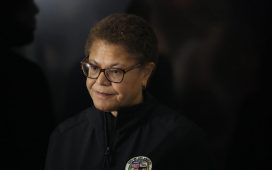In the wake of the Federal Trade Commission’s proposal of new, sweeping regulations on car dealership price advertising and F&I product disclosure, a client of Hudson Cook partner Jean Noonan asked her, “Wasn’t all of this already illegal?”
Yes and no, said Noonan and other compliance experts who explored the rationale and timing of the draft regulations in interviews with Automotive News.
The FTC already can take action if dealerships violate the federal prohibition on unfair or deceptive acts or practices, according to Shannon Robertson, executive director of the Association of Finance and Insurance Professionals. But this entails the agency going to court and proving the behavior was indeed unfair or deceptive, he said.
“There’s an entire process there,” Robertson said.
But if a particular behavior is specifically defined as illegal by itself in a regulation, it’s easier for the government to make its case, according to Robertson.
“It’s hard-coded in there,” he said. “‘You cannot do it. We caught you doing it. Here’s your fine.”
The FTC allows a maximum civil penalty of $46,517 per violation.
The FTC also may target dealerships for misleading advertising using the Truth in Lending Act and its associated Regulation Z. But Robertson said the proposed regulation went beyond that point and would capture deceptive behavior that the Truth in Lending Act would miss.
“This would expand those advertising rules,” he said.
FTC commissioners said the proposed rule would allow their agency to pursue civil penalties and consumer redress following the Supreme Court in 2021 declaring the agency’s go-to means for doing so to be improper. A unanimous court held in AMG Capital Management v. FTC that the commission couldn’t request monetary relief alongside an injunction request in federal court. The Supreme Court said the agency needed to follow administrative procedures and then seek the civil penalty.
“That was a tremendous blow to the FTC’s enforcement program,” said Noonan, who once directed FTC regulation and enforcement of financial practices.
Without a trade regulation rule, the FTC could only order a company to quit a particular practice. It couldn’t get more aggressive until the company committed a second violation, rendering the first instance effectively “free,” she said.
The FTC also is using a more streamlined rule-making process. Noonan said the format adopted here lets the FTC get a new rule up and running in a year to a year and a half compared with an average of five years for other FTC rule-makings.
Ignite Consulting Partners compliance attorney Randy Henrick said he felt a year and a half was “pretty fast,” and estimated the agency would need two or two and a half years.
“They will get a lot of comments,” he said.
The agency will soon open a 60-day window for public comment on the proposal, No. P204800.
National Automobile Dealers Association spokesman Jared Allen said Thursday, June 30, that the organization plans to seek an extension on the 60-day comment period,
“It is imperative that regulators conduct proper, thorough and evidence-based analyses before proposing rules that would have such drastic ramifications on consumers and market participants, especially small businesses,” NADA President Mike Stanton said in a statement Thursday.
Two of commissioners who voted 4-1 in favor of the regulations were appointed by Republican former President Donald Trump — Democrat Rebecca Slaughter and Republican Noah Phillips. The other two are Democrats appointed by President Joe Biden. But Henrick anticipated the FTC would still seek to enact something before what could be a different presidential administration in 2025.
“That’s a practical deadline,” Henrick said.







